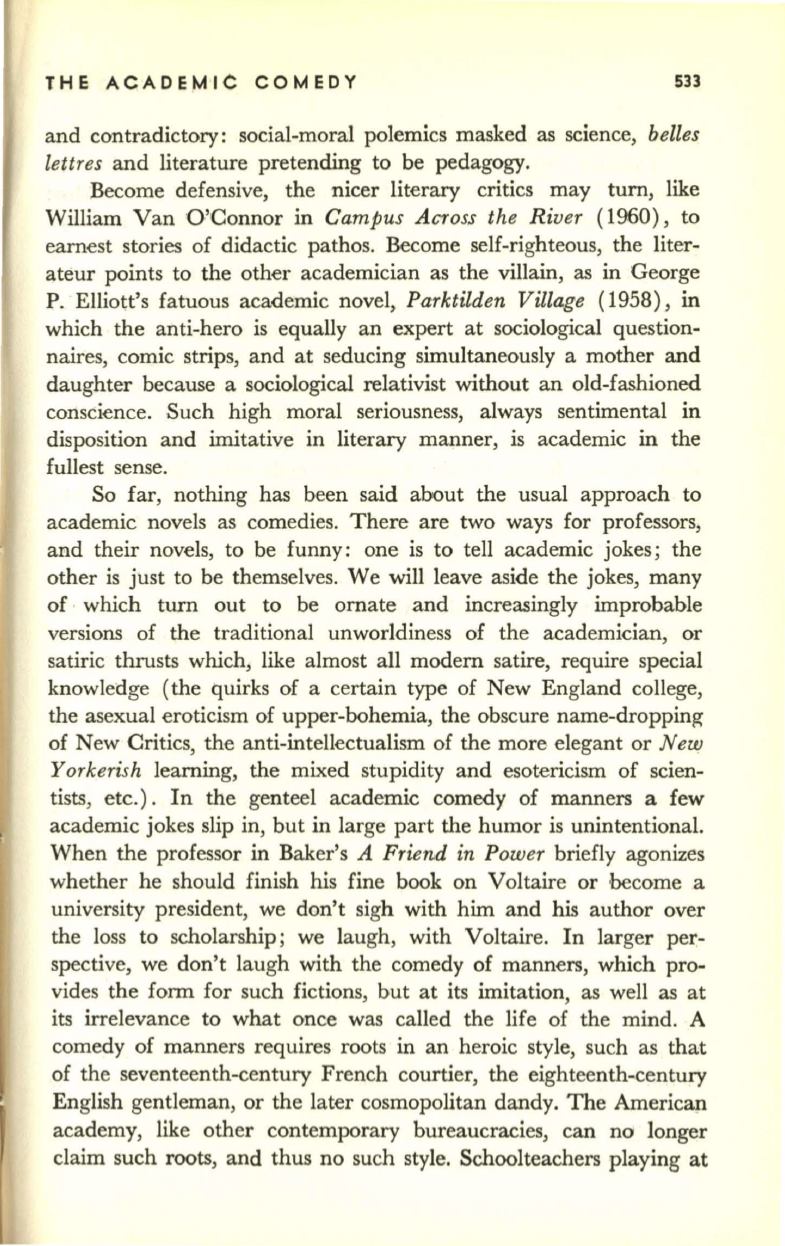
THE ACADEMIC COMEDY
533
and contradictory: social-moral polemics masked as science,
belles
lettres
and literature pretending to be pedagogy.
Become defensive, the nicer literary critics may turn, like
William Van O'Connor in
Campus Across the River
(1960) , to
earnest stories of didactic pathos. Become self-righteous, the liter–
ateur points to the other academician as the villain, as in George
P.Elliott's fatuous academic novel,
Parktilden Village
(1958), in
which the anti-hero is equally an expert at sociological question–
naires, comic strips, and at seducing simultaneously a mother and
daughter because a sociological relativist without an old-fashioned
conscience. Such high moral seriousness, always sentimental in
disposition and imitative in literary manner, is academic in the
fullest sense.
So far, nothing has been said about the usual approach to
academic novels as comedies. There are two ways for professors,
and their novels, to be funny: one is to tell academic jokes; the
other is just to be themselves. We will leave aside the jokes, many
of which turn out to be ornate and increasingly improbable
versions of the traditional unworldiness of the academician, or
satiric thrusts which, like almost all modern satire, require special
knowledge (the quirks of a certain type of New England college,
the asexual eroticism of upper-bohemia, the obscure name-dropping
of New Critics, the anti-intellectualism of the more elegant or
New
Yorkerish
learning, the mixed stupidity and esotericism of scien–
tists, etc.). In the genteel academic comedy of manners a few
academic jokes slip in, but in large part the humor is unintentional.
When the professor in Baker's
A Friend in Power
briefly agonizes
whether he should finish his fine book on Voltaire or become .a
university president, we don't sigh with him and his author over
the loss to scholarship; we laugh, with Voltaire. In larger per–
spective, we don't laugh with the comedy of manners, which pro–
vides the form for such fictions, but at its imitation, as well as at
its irrelevance to what once was called the life of the mind. A
comedy of manners requires roots in an heroic style, such as that
of the seventeenth-century French courtier, the eighteenth-century
English gentleman, or the later cosmopolitan dandy. The American
academy, like other contemporary bureaucracies, can no longer
claim
such roots, and thus no such style. Schoolteachers playing at


